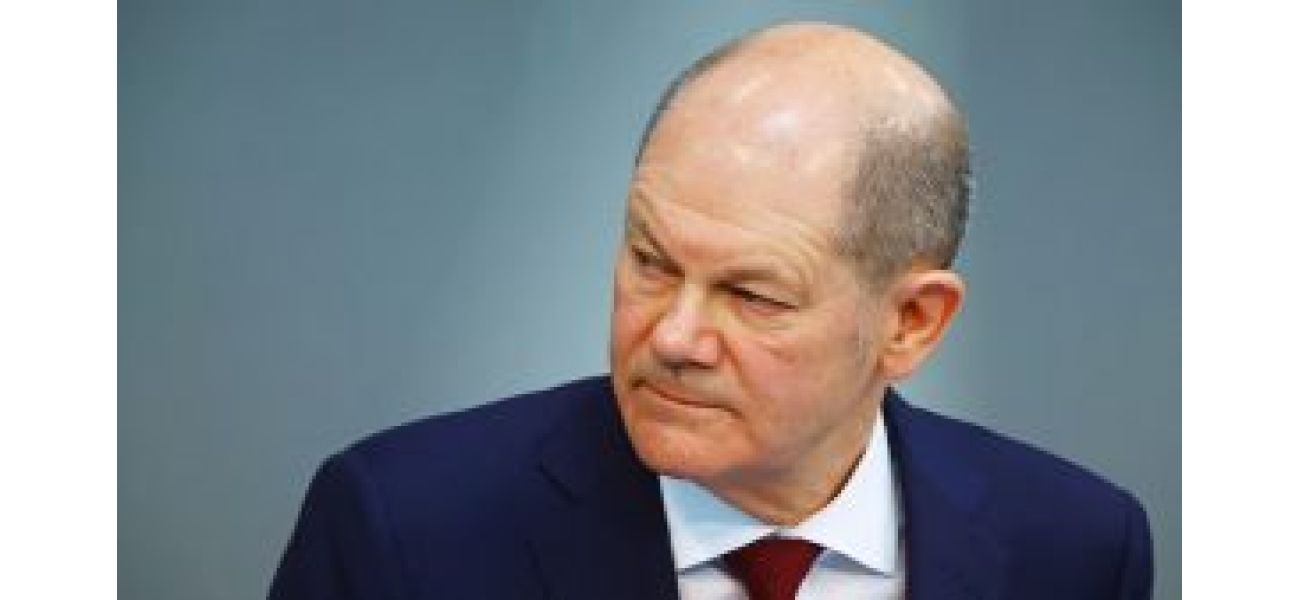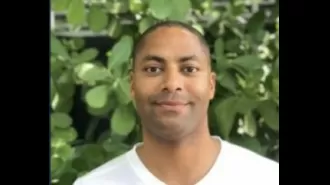Germany faces tough decision on immigration as citizens conflict over accepting refugees. Germany in tough spot on immigration as citizens disagree on accepting refugees.
German Chancellor Scholz's Social Democratic Party gained a crucial victory in Brandenburg, but this may not save his coalition from the threat of the far-right AfD.
September 24th 2024.

German Chancellor Olaf Scholz received a much-needed boost as his Social Democratic Party secured a victory in the state of Brandenburg on September 22nd. However, this win is overshadowed by the troubling rise of the far-right neo-Nazi party, Alternative for Germany, which poses a major threat to Scholz's three-party coalition. While state elections do not directly impact the government in Berlin, they are often seen as a reflection of the national mood and the coalition's popularity. This was the third and final state election before the country votes for a new chancellor and federal government in a year.
The official results show that Scholz's party won 31% of the votes, with the AfD close behind at just over 29%. These figures are concerning as nearly 45% of voters chose extremist parties, and the state saw its highest voter turnout since reunification with 73%. It is evident that the people's mood is shifting away from the current coalition of the SPD, Free Democratic Party, and Green Party.
The unexpected victory for the Social Democrats in Brandenburg is attributed to the popular governor, Dietmar Woidke's, intense campaigning and strategic voting against the AfD. Woidke, a member of the SPD, made it clear that their main goal was to prevent the state from falling into the hands of the far-right party. This result comes after the AfD's success in two other eastern states, Saxony and Thuringia, earlier this month. In all three states, the AfD received around 30% of the votes. While the SPD narrowly beat the AfD in Brandenburg, the far-right party had a higher share of the votes in Thuringia at 32.8%.
The implications of this victory are not lost on Woidke, who recognizes that if a party with openly extremist views can gain 30% of the votes in his state, it is a wake-up call for everyone who stands for freedom, openness, and tolerance. Both the AfD and the new far-left party, Bundnis Sahra Wagenknecht, centered their campaigns on controlling immigration, which is a concern for many Germans, and opposing military support for Ukraine.
However, the narrow victory over the AfD in Brandenburg has sparked a debate within the federal coalition on its future. The coalition must now come together and address important issues such as immigration and the economy. While the SPD was able to break their losing streak in Brandenburg, the other two parties, the Greens and the FDP, continued to struggle. The Greens failed to secure any seats in the state parliament, receiving only 4% of the votes, a significant drop from the last election. The FDP fared the worst with less than 1% of the vote share.
These results, combined with the coalition's poor performance in other state and European elections, have put the parties in a state of crisis, particularly the FDP. As a federal election looms in a year, the coalition must work to overcome their differences and unite their bases, which is no easy task.
The FDP is deeply troubled by the rise of the far-right and some leaders are questioning if it would be better to end the coalition in a last-ditch effort to revive their party's fortunes, even if it means an early election. Experts agree that the coalition's future hinges on their ability to control the influx of asylum seekers, stimulate economic growth, and reach a budget agreement in the coming months. Time is of the essence, and the coalition must act swiftly if they hope to combat the AfD. However, with internal conflicts and a lack of trust from the people, their prospects seem bleak.
It is crucial for all anti-Nazi forces to unite and regain the trust of the people in the upcoming elections. At the moment, their credibility is at an all-time low, and it is imperative that they take action to address the concerns of the people and combat the growing influence of the far-right. The future of the coalition and the stability of the country depend on it.
The official results show that Scholz's party won 31% of the votes, with the AfD close behind at just over 29%. These figures are concerning as nearly 45% of voters chose extremist parties, and the state saw its highest voter turnout since reunification with 73%. It is evident that the people's mood is shifting away from the current coalition of the SPD, Free Democratic Party, and Green Party.
The unexpected victory for the Social Democrats in Brandenburg is attributed to the popular governor, Dietmar Woidke's, intense campaigning and strategic voting against the AfD. Woidke, a member of the SPD, made it clear that their main goal was to prevent the state from falling into the hands of the far-right party. This result comes after the AfD's success in two other eastern states, Saxony and Thuringia, earlier this month. In all three states, the AfD received around 30% of the votes. While the SPD narrowly beat the AfD in Brandenburg, the far-right party had a higher share of the votes in Thuringia at 32.8%.
The implications of this victory are not lost on Woidke, who recognizes that if a party with openly extremist views can gain 30% of the votes in his state, it is a wake-up call for everyone who stands for freedom, openness, and tolerance. Both the AfD and the new far-left party, Bundnis Sahra Wagenknecht, centered their campaigns on controlling immigration, which is a concern for many Germans, and opposing military support for Ukraine.
However, the narrow victory over the AfD in Brandenburg has sparked a debate within the federal coalition on its future. The coalition must now come together and address important issues such as immigration and the economy. While the SPD was able to break their losing streak in Brandenburg, the other two parties, the Greens and the FDP, continued to struggle. The Greens failed to secure any seats in the state parliament, receiving only 4% of the votes, a significant drop from the last election. The FDP fared the worst with less than 1% of the vote share.
These results, combined with the coalition's poor performance in other state and European elections, have put the parties in a state of crisis, particularly the FDP. As a federal election looms in a year, the coalition must work to overcome their differences and unite their bases, which is no easy task.
The FDP is deeply troubled by the rise of the far-right and some leaders are questioning if it would be better to end the coalition in a last-ditch effort to revive their party's fortunes, even if it means an early election. Experts agree that the coalition's future hinges on their ability to control the influx of asylum seekers, stimulate economic growth, and reach a budget agreement in the coming months. Time is of the essence, and the coalition must act swiftly if they hope to combat the AfD. However, with internal conflicts and a lack of trust from the people, their prospects seem bleak.
It is crucial for all anti-Nazi forces to unite and regain the trust of the people in the upcoming elections. At the moment, their credibility is at an all-time low, and it is imperative that they take action to address the concerns of the people and combat the growing influence of the far-right. The future of the coalition and the stability of the country depend on it.
[This article has been trending online recently and has been generated with AI. Your feed is customized.]
[Generative AI is experimental.]
0
0
Submit Comment





